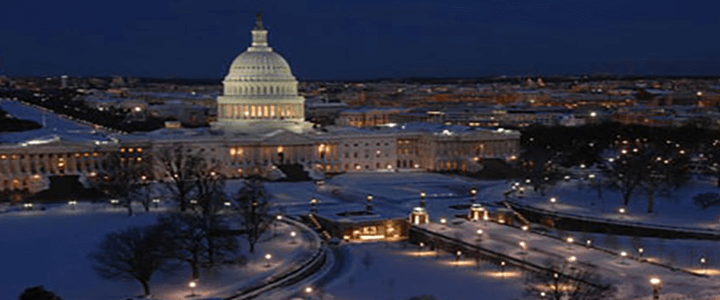Who gets a security clearance? Who needs a security clearance? Who must absolutely have one? What are the general phases of the clearance process? These are questions any cleared professional—and anyone hoping to be a cleared professional—might ask. Because the clearance system is governed by the Constitution, by law, and by policy, achieving an authoritative understanding of both the simple and more nuanced aspects of clearance questions is challenging. When Congress needs to understand the most complex questions for the sake of deliberation, it turns to the Congressional Research Service for answers.
In early October, about the time questions of clearances became most pressing in our national elections, the Congressional Research Service’s Michelle D. Christensen gave us “Security Clearance Process: Answers to Frequently Asked Questions,” fourteen pages of footnoted clarity on clearances.
A SLOW PROCESS
Getting a clearance takes time. That’s why the Obama Administration launched the National Background Investigations Bureau (NBIB) in January. On the first day of the new fiscal year, President Obama passed clearance authority to the new NBIB. It’s still too early to know whether the NBIB can accelerate the clearance process, but keep your fingers crossed.
According to CRS—and as most of us know—getting a clearance can take a while. “The longest processing time for the fastest . . . cases,” Christensen reports, “ranged from 134 days for the National Security Agency (NSA) to 395 days for the National Geospatial-Intelligence Agency (NGA). For Secret or Confidential Clearances, the longest processing time for the fastest . . . ranged from 153 days for the Department of State to 197 days for the CIA.” If you’re waiting on a job, that kind of timeline can be debilitating.
Thankfully, once you get the clearance, you’re pretty free to move around among agencies without having to endure another clearance process. “With certain exceptions, a security clearance granted by one agency must be accepted by other agencies,” Christensen explains. That’s thanks to the Intelligence Reform and Terrorism Prevention Act (IRTPA) of 2004. Of course, there are exceptions to the reciprocal policy. For instance, highly classified, compartmented information in one agency isn’t necessarily equal to compartmented information in another agency. Those kinds of differences may require additional background checks for onboarding employees.
NEED TO KNOW
We know we have to have a need to know. That is, only if your work requires you to access classified information will you be eligible for a clearance. It’s not a passport. You can’t get it just to supercharge your resume—though if you have a clearance in hand from your current or previous position, it supercharges your resume.
And the clearance doesn’t answer the question about exactly what it is a clearance candidate needs to know. The clearance itself only means “an individual . . . is eligible for access to classified national security information,” CRS explains. “A security clearance alone does not grant an individual access to classified materials.” The agency where you work will determine exactly what it needs you to know to do your job for them.
NOT EVERYONE NEEDS TO KNOW
No matter how high up the ladder you climb in the Federal government, you may still not rate a clearance. Even if you’re President. Even if you’re Vice President. Even if you’re a member of Congress. Even if you’re sitting on the Supreme Court. In fact, those jobs don’t even require a clearance, for good reason. “The criteria for election or appointment to these positions are specified in the U.S. Constitution,” Christensen writes, “and except by constitutional amendment, no additional criteria . . . may be required.”
On the other hand, staff members to these offices may very well be required to hold a clearance in order to do their job. In part, that’s because those positions are not constitutionally controlled. Instead, requirements for staff to be cleared are “established, for the most part, by public laws, congressional rules, and judicial procedures.”
CLEARANCE KILLERS (SOMETIMES)
There’s a host of reasons why one person or another may not finally receive a security clearance from the NBIB. Questions about loyalty to the country, foreign connections, sexual behavior (different from orientation), your finances, drug and alcohol abuse, criminal conduct, and more are a few of the 13 reasons your clearance may not be approved. However, while all those sordid topics may raise questions, issues surrounding “one of the guidelines will not automatically result in denial of a security clearance.”
The CRS never produces a document unless congress is asking the question. And it seems even high ranking members of congress have a few questions about the clearance process.




